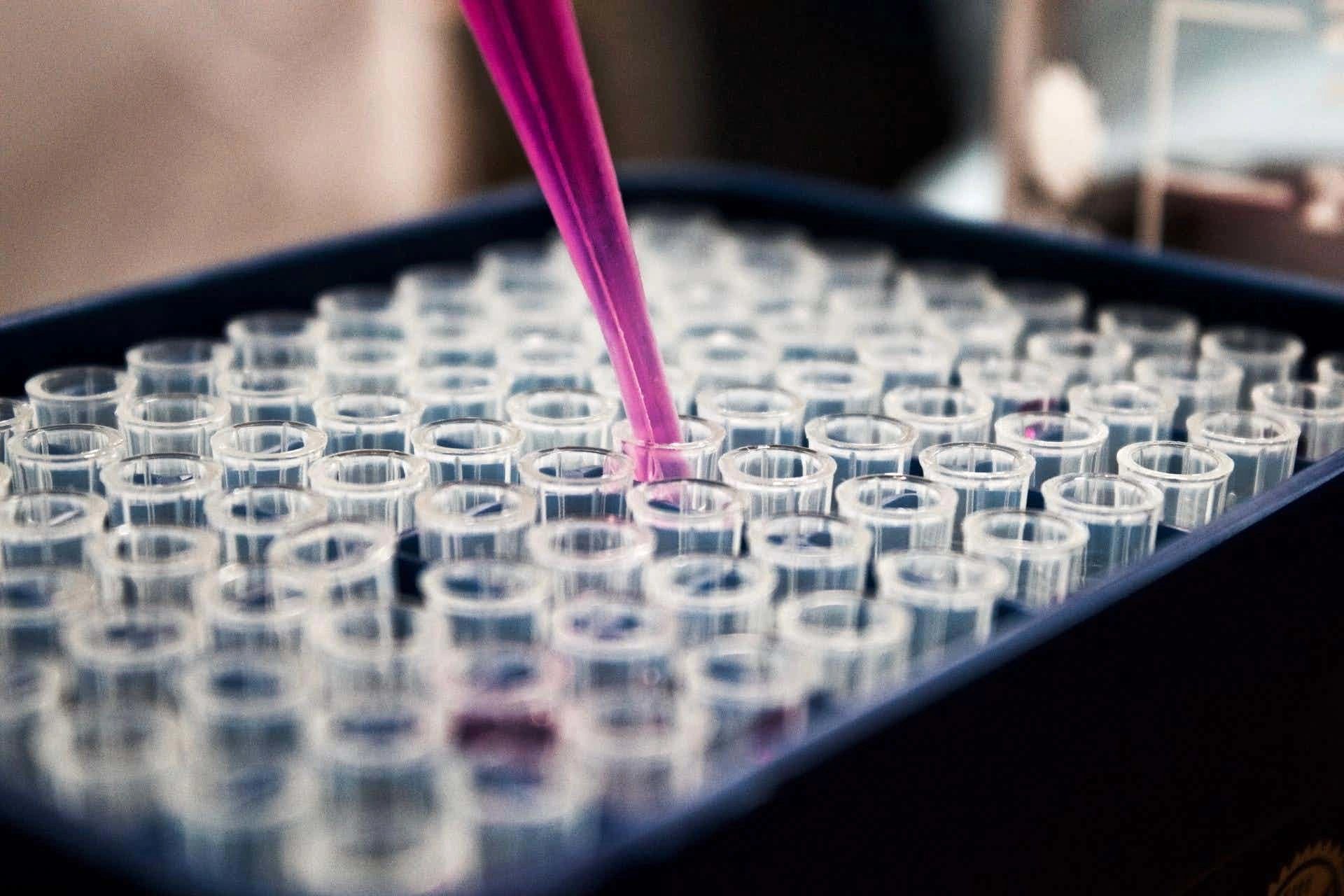What are the most common types of cancer in the UK?
Like this project
Posted Nov 6, 2023
Did you know that Cancer Research UK says that one in every two of us will develop cancer at some point?
Likes
0
Views
2

Did you know that Cancer Research UK says that one in every two of us will develop cancer at some point? Therefore, maintaining a healthy immune system and going for checkups can help prevent the spread of cancer via early detection.
There are over 200 distinct forms of cancer, including:
Skin cancer (melanoma)
Cervical cancer due to human papillomavirus (HPV)
Leukaemia,
Liver cancer (due to chronic hepatitis)
Carcinoma
Ovarian cancer
Pancreatic cancer
Thyroid cancer
Sarcoma
Hodgkin's lymphoma (cancer in lymph nodes)
Childhood cancer, including leukaemia’s, brain tumours, lymphomas, and solid tumours such as neuroblastoma
Most symptoms of cancer vary in the type of cancer diagnosis. Treatment options will also depend on the different types of cancer. Cancer can be treated with chemotherapy, radiology, surgery, and immunotherapy in most cases.
Get vitamins and medication delivered to your door!
Products available?
Vitamins & Supplements
Products available?
Meal replacement shakes, soups and bars
Products available?
Vitamins & Supplements
Products available?
Medications,vitamins, and supplements
Products available?
Vitamins & Supplements
Accepts NHS prescriptions?
No
Accepts NHS prescriptions?
No
Accepts NHS prescriptions?
No
Accepts NHS prescriptions?
Yes
Accepts NHS prescriptions?
No
Organic/Vegan Options
Fully organic and vegan
Organic/Vegan Options
No
Organic/Vegan Options
No
Organic/Vegan Options
No
Organic/Vegan Options
Vegan options available
Bundle savings?
No
Bundle savings?
Yes
Bundle savings?
yes
Bundle savings?
Yes
Bundle savings?
No
See the bigger picture
See the bigger picture
See the bigger picture
See the bigger picture
Let's take a look at the four most frequent kinds of cancer in the United Kingdom:
1. Breast cancer
Breast cancer may present with various symptoms, the most obvious of which is generally a lump or region of enlarged breast tissue.
Most breast lumps are not malignant, but it is always good to get them examined by a specialist.
You should also visit a doctor if you have any of the following symptoms:
A change in the size or shape of one or both breasts
Discharge from either nipple, which may be tinged with blood
A lump or swelling in either armpit
Dimpling on the skin of your breasts
A rash around or on your nipple
A change in your nipple's appearance, such as getting buried into your breast
Breast cancer causes
The precise causes of breast cancer remain unknown. The following variables are known to raise the chance of breast cancer:
Age – the risk rises with age family history of breast cancer
A prior breast cancer diagnosis
Being tall, overweight, or obese, having a prior non-cancerous (benign) breast lump
Alcohol consumption
Breast cancer diagnosis
Following an examination of your breasts, your doctor may recommend you to a specialized breast cancer clinic for further testing.
Breast screening (mammography) or obtaining a tiny sample of breast tissue to be inspected under a microscope may be included in a biopsy.
Jo Taylor from ABC Diagnosis told us: “Unfortunately many breast cancer awareness campaigns fail as they focus on the message that is about finding a lump. There are many women who are diagnosed with eg Lobular breast cancer where you do not find a lump it’s a thickening or Inflammatory breast cancer is this is a rash on the breast.
"Many women are failed by GPs and sent away especially if they are young that they are too young to develop breast cancer. Education is key. There are no awareness campaigns about metastatic or secondary breast cancer and around 8% of women are diagnosed with Stage 4 disease straight away and never find a lump.
"Again, awareness is key and this is why I have created infographics which are signposted by NHS England and have been translated into 11 languages which will be enhancing global awareness of this disease.
"Anyone who has had primary breast cancer needs to be aware of the infographics so that they understand the risk of recurrence”
Breast cancer treatment
Breast cancer can be treated with surgery, chemotherapy, or radiotherapy.
Surgery is often the initial kind of treatment, followed by chemotherapy, radiotherapy, and, in certain situations, hormone or targeted therapies.
Your breast cancer type will determine the kind of surgery and subsequent therapy you get.
Living with breast cancer
Cancer patients' reactions to the diagnosis and cancer care differ. Support may take the following forms:
Relatives and friends that can provide a solid support system
Talking to other patients
Educating yourself about your illness
Avoiding attempting to accomplish too much or overexerting yourself
Making time for oneself
2. Lung cancer
Lung cancer is among the most common and deadliest cancers in the UK. Around 47,000 individuals in the UK alone are diagnosed with lung cancer every year.
Lung cancer primarily affects the elderly. It is uncommon in persons under the age of 40. However, more than four out of every ten persons diagnosed with lung cancer are 75 or older in the UK.
There are usually no indications or symptoms of lung cancer in its early stages, although many patients with lung cancer later develop symptoms such as:
A chronic cough
Chronic shortness of breath
Unexplained fatigue and weight loss
Discomfort or soreness while inhaling or coughing
Lung cancer causes
Tobacco usage is by far the most significant cause of lung cancer. Smoking is responsible for over 80% of lung cancer fatalities, and second-hand smoke exposure is responsible for many more.
Although smoking is the most significant risk factor for lung cancer, it often interacts with other variables. For example, people who smoke and are exposed to other known risk factors such as radon and asbestos are significantly higher - genetics also play a significant role.
Lung cancer treatment
Treatment is determined by the kind of mutation in the tumour, the extent of its dissemination, and your overall health.
If the problem is detected early and the malignant cells are contained to a small region, surgery to remove the afflicted lung area may be advised. If surgery is not an option due to your overall health, radiation to remove malignant cells may be suggested.
Chemotherapy is frequently used when cancer has gone too far for surgery or radiation to be helpful.
A class of medications called targeted treatments is also available. They aim for a particular alteration in or around the cancer cells that aid in their growth. Although targeted medicines cannot cure lung cancer, they may help halt its spread.
Living with lung cancer
Lung cancer doesn't typically present symptoms until it has progressed beyond the lungs or into other body regions. One in every three persons with lung cancer lives for at least a year after being diagnosed, and one in every twenty lives for at least ten years.
Survival chances, however, vary greatly depending on how far cancer has spread to the other parts of the body. Therefore, an early diagnosis may make a significant impact.
3. Prostate cancer
The prostate is a tiny gland located in the pelvis, a component of the male reproductive system. It is about the size of a walnut and sits between the penis and the bladder, encircling the urethra.
The prostate's primary purpose is to generate a thick white fluid known as sperm.
Prostate cancer symptoms
Symptoms of prostate cancer usually do not appear until the prostate has grown large enough to obstruct the tube that takes urine from the bladder out of the penis (urethra).
When this occurs, you may:
Need to urinate more frequently
Feel that your bladder has not been completely emptied
These symptoms should not be disregarded, but they may not necessarily indicate that you have prostate cancer.
Prostate cancer causes
The causes of prostate cancer are mainly unknown. However, several factors might enhance your chances of developing prostate tumours.
As you become older, your risk of cancer might increase. Most prostate cancer cases occur in men over 50.
Men that have a father or grandfather who had prostate cancer have a slightly increased risk of getting it themselves. Additionally, obesity may potentially raise the risk of prostate cancer.
Prostate cancer treatment
If the cancer is in its early stages and is not producing symptoms, your doctor may advise "watchful waiting" or "active surveillance." Some instances of prostate cancer may be cured if caught early enough.
Among the available treatments are:
Surgically removing the prostate – either alone or in conjunction with hormone treatment
If cancer has spread to other body regions and cannot be treated, therapy focuses on extending life and alleviating symptoms.
All treatment methods entail the potential of severe side effects, such as erectile dysfunction and urinary symptoms, such as the need to use the restroom more often or urgently.
As a result, you may decide to postpone treatment until there is a chance that cancer may spread.
Newer therapies, such as high-intensity focused ultrasound (HIFU) and cryotherapy are attempting to lessen these adverse effects. Some hospitals may provide them instead of surgery, radiation, or hormone treatment. However, the long-term efficacy of this therapy is unknown.
Living with prostate cancer
Because prostate cancer grows slowly, you may go for decades without experiencing symptoms or requiring treatment.
Nonetheless, it might have an impact on your life. Aside from the potential adverse effects of therapy, a prostate cancer diagnosis might undoubtedly make you feel nervous or unhappy.
It might help to discuss your situation with your family, friends, a doctor, and other men who have prostate cancer.
4. Bowel cancer
Bowel cancer is a catch-all phrase for cancer that starts in the large intestine. Bowel cancer is sometimes known as colorectal (colon or rectum) cancer.
Bowel cancer is one of the most common cancers in the UK. The majority of those diagnosed with it are above the age of 60.
Bowel cancer symptoms
The following are the three most common symptoms of bowel cancer according to oncology research from the Markey Cancer Center:
Persistent blood in your stool
Runnier than usual stools
Lower abdominal (tummy) pain, bloating, or discomfort
These symptoms should be treated more carefully as you become older, especially if they continue after basic therapies. The doctor may decide to:
Make sure there are no bumps on your stomach or bottom
Arrange for a simple blood test to check for iron-deficiency anaemia – this may reveal if there is any bleeding from your intestines that you are unaware of, or lead to your GP planning for you to undergo a basic test in hospital to ensure that there is no major cause of your symptoms
Bowel cancer causes
The specific aetiology of bowel cancer is unknown, although various factors might raise your risk, including:
Diet
Inactivity
Alcohol consumption
Smoking
Bowel cancer treatment
Depending on where the cancer is in your gut and how far it has progressed, colon cancer may be treated with a mix of various treatments:
Surgery - the malignant segment of the colon is removed; it is the most successful method of treating bowel cancer and, in many instances, is all that is required.
Chemotherapy
Radiotherapy
Immunotherapy
The possibility of a complete cure, like with most cancers, is dictated by how far the cancer has advanced by the time it is detected. If the cancer is just in the colon, surgery may entirely remove it.
According to the National Cancer Institute, keyhole or robotic surgery is becoming increasingly popular, allowing for less discomfort and a faster recovery time.
Living with bowel cancer
Depending on the stage of your cancer and the therapy you are receiving, bowel cancer might have various effects on your everyday life.
Here are a few tips to help you:
Confide in your friends and family — they may be a great source of support.
Interact with other bowel cancer patients
Educate yourself about your health
Do not attempt to accomplish too much or overexert yourself
Make time for yourself



